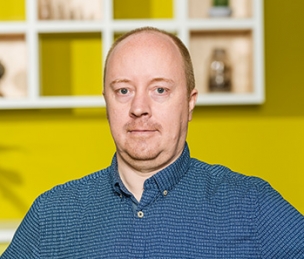Displaying 1 - 4 of 4
-
Seyfeddinipur, M., Ameka, F., Bolton, L., Blumtritt, J., Carpenter, B., Cruz, H., Drude, S., Epps, P. L., Ferreira, V., Galucio, A. V., Hellwig, B., Hinte, O., Holton, G., Jung, D., Buddeberg, I. K., Krifka, M., Kung, S., Monroig, M., Neba, A. N., Nordhoff, S. and 10 moreSeyfeddinipur, M., Ameka, F., Bolton, L., Blumtritt, J., Carpenter, B., Cruz, H., Drude, S., Epps, P. L., Ferreira, V., Galucio, A. V., Hellwig, B., Hinte, O., Holton, G., Jung, D., Buddeberg, I. K., Krifka, M., Kung, S., Monroig, M., Neba, A. N., Nordhoff, S., Pakendorf, B., Von Prince, K., Rau, F., Rice, K., Riessler, M., Szoelloesi Brenig, V., Thieberger, N., Trilsbeek, P., Van der Voort, H., & Woodbury, T. (2019). Public access to research data in language documentation: Challenges and possible strategies. Language Documentation and Conservation, 13, 545-563. Retrieved from http://hdl.handle.net/10125/24901.
Abstract
The Open Access Movement promotes free and unfettered access to research publications and, increasingly, to the primary data which underly those publications. As the field of documentary linguistics seeks to record and preserve culturally and linguistically relevant materials, the question of how openly accessible these materials should be becomes increasingly important. This paper aims to guide researchers and other stakeholders in finding an appropriate balance between accessibility and confidentiality of data, addressing community questions and legal, institutional, and intellectual issues that pose challenges to accessible data. -
Broeder, D., Sloetjes, H., Trilsbeek, P., Van Uytvanck, D., Windhouwer, M., & Wittenburg, P. (2011). Evolving challenges in archiving and data infrastructures. In G. L. J. Haig, N. Nau, S. Schnell, & C. Wegener (
Eds. ), Documenting endangered languages: Achievements and perspectives (pp. 33-54). Berlin: De Gruyter.Abstract
Introduction Increasingly often research in the humanities is based on data. This change in attitude and research practice is driven to a large extent by the availability of small and cheap yet high-quality recording equipment (video cameras, audio recorders) as well as advances in information technology (faster networks, larger data storage, larger computation power, suitable software). In some institutes such as the Max Planck Institute for Psycholinguistics, already in the 90s a clear trend towards an all-digital domain could be identified, making use of state-of-the-art technology for research purposes. This change of habits was one of the reasons for the Volkswagen Foundation to establish the DoBeS program in 2000 with a clear focus on language documentation based on recordings as primary material. -
Trilsbeek, P., & Wittenburg, P. (2005). Archiving challenges. In J. Gippert, N. Himmelmann, & U. Mosel (
Eds. ), Essentials of language documentation (pp. 311-335). Berlin: Mouton de Gruyter. -
Wittenburg, P., Skiba, R., & Trilsbeek, P. (2005). The language archive at the MPI: Contents, tools, and technologies. Language Archives Newsletter, 5, 7-9.

Share this page